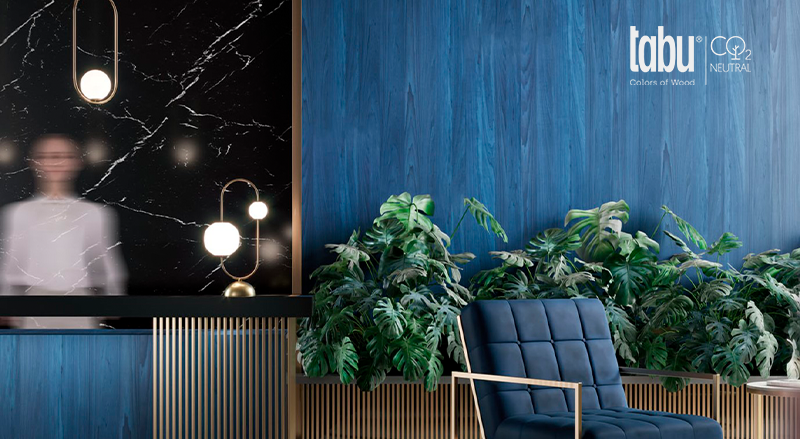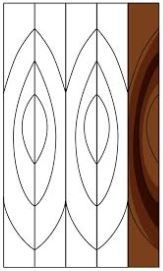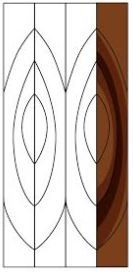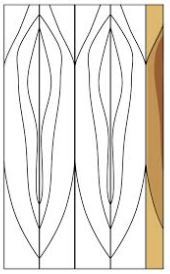
Dyed Veneer: Simplifying Vibrant Color Combinations and Wood Tones
When designing architectural spaces, one of the most challenging tasks is finding the balance between natural wood tones and vibrant
The veneer leaf width determines the appearance and yield of a panel
OPTIONS

Balance Match
Panel faces are made from an odd or even number of equal width veneer pieces. If the panel run is large, the number of veneer pieces per equal width panel may eventually increase or decrease as the individual veneer pieces vary in width within the total flitch. Grain continuity may change on adjacent panels as a result of this, but the panels are generally more symmetrical than are running matched panels.
This face matching method may be used in sequence-matched sets and is commonly used in blueprint-matched panels.

Center Balance Match
This creates the most symmetrical pattern in architectural paneling. All leaves are trimmed to the same size and the pattern uses an even number of leaves, centered on the panel face.
Center matching is also considered one of the most visually pleasing matches. It’s typically costlier and the trimming and centering requires some more veneer than other matches.

Running Match
Each panel face is assembled from as many leaves as necessary. Any portion left over from the last leaf may be used as the start of the next panel.
This often results in a non-symmetrical appearance, with some veneer leaves of unequal width. The running match technique is the most economical method of veneer matching, but aesthetics are sacrificed to some extent when this method is used. Running matches are seldom “sequenced and numbered” for use as adjacent panels.